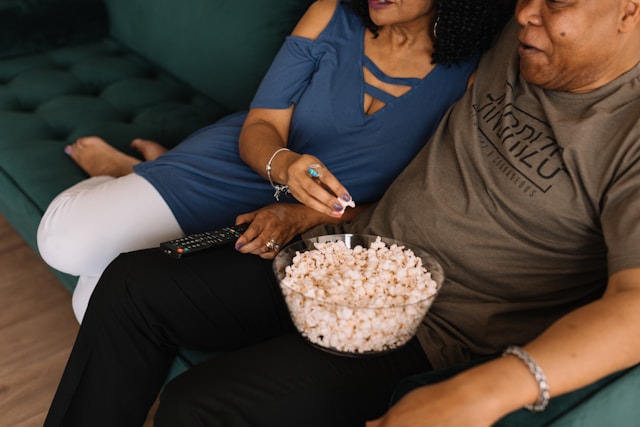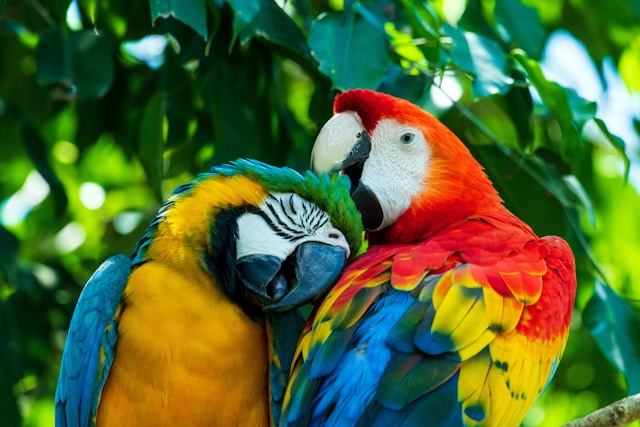A United Kingdom of Regional Dialects

Unsplash: Massimo Virgilio
Have you ever watched a show in English but had a really hard time understanding what the characters are saying, even if it’s your native language or one you’ve been learning for a long time? It might be because they are speaking a totally different dialect!
Across the United Kingdom, different dialects have developed as a result of continuity of language and simultaneous change in use and culture. British English both sounds and is used differently in Ireland, Scotland, Wales, and even within different parts of England itself. There is variance in common use and a huge array of slang used all over the UK.
To say that there is only one British English dialect is like saying there is only one type of apple; in fact, there are many varieties of apples including Honeycrisp, Cortland, and Royal Gala. Just like different types of apples, accent and dialect vary greatly from region to region. And, like apples, each language has developed based on local regional use and culture. There are about 40 British regional dialects, and probably even more! Let’s explore a few here so we can maybe figure out what the characters from Peaky Blinders are actually saying.
1. COCKNEY
Do you have a didgeridoo what I’m saying? No? Then you need to practice your Cockney rhyming slang, one of the most widely-recognised English dialects. Market traders created the code to communicate and confuse police officers by hiding what the speaker was originally saying, substituting words that rhyme for the original word. It’s a hard skill to master, but you can still hear Cockney tossed about by market traders along the East End! In the meantime, have a cup of Rosie and learn these Cockney rhymes.
- Didgeridoo = clue
- Daisy roots = boots
- Syrups and figs = wigs
2. BRUMMIE
Ever heard of a bottler? Taken a gambol? Dumped something down the suff? Then you must know Brummie! This dialect hails from Birmingham, a city of over 4 million people only 100 miles outside London. The intensity of the Brummie dialect varies from person to person across the Midlands region. Here are three Brummie examples to start you off!
- Throw a wobbly = have a tantrum
- Cack-handed = clumsy
- Yampy = a mad or daft person
3. SCOUSE
Scouse originated in Liverpool along with The Beatles, Jodie Comer, Lucius Malfoy, and 007 himself: Daniel Craig. It gets its name from a Norwegian stew called lobscouse, but the accent and dialect have travelled much farther than the soup. Scousers are also often called Liverpudlians! The dialect is known to be fun and melodious. Check out a Beatles documentary or live album recording if you want to hear the dialect aloud.
- Chocca = busy
- Boss = incredibly awesome
- Bevvy = beverage
4. GEORDIE
If you share a cuppa with Sting, you’re going to probably pick up some famous Geordie slang. One of the oldest British dialects, it was practically banned from public media until the 1970s but has since been re-popularised by Ant and Dec and Inside Out presenter Chris Jackson. It originates from Newcastle and the surrounding area of Tyneside and gets its name from the common name George.
- Oh, hadaway yi daft bugga = away with you (can be friendly or… not)
- Eeh that’s champion, man = that’s great!
5. NORTHERN IRISH
Wee Nicola Coughlan (actually from the south!) uses a kicking NI accent and tons of typical dialect in the hit show Derry Girls. Over the last century, Northern Ireland developed a unique dialect different from Ireland, adding in flecks of Scots and Irish Gaelic. A quick note there; the word “wee” in Northern Irish is used as a term of endearment and to describe a lot of things, not just small things. Try adding wee in front of the following words and other common Northern Irish phrases!
- Baltic = freezing cold
- Dander = stroll
- Kip = sleep
6. SCOTS
Next up: Scots, assigned as the ‘traditional language’ by the Scottish Executive. Scots is derived from Old English and close to Northumbrian dialects. It has four main dialects: Insular, Northern, Central, and Southern. Each main dialect also has a set of sub-dialects and accents, making its use very diverse across the Scottish highlands. People will even blend Scottish English, Scots, and Scottish Gaelic in a single conversation! Here are three useful Scottish sayings to practise before your next trip.
- Pure dead brilliant = amazing
- Am pure done in = I am pretty tired
- Aye mate = yes friend
7. WELSH ENGLISH
Wales is located on the western side of England where nearly 30% of its population speaks Welsh, often considered one of the most challenging languages to learn! Welsh English, also called “Wenglish,” is a combination of English and the five different Welsh dialects. The Welsh English dialect is shaped by the English spoken in its surrounding regions. For example, in Northern Wales, the accent is known to be thick and breathy, close to the dialect spoken in Merseyside. On the other hand, the accent in Southern Wales is more musical and sing-songy. Michael Sheen and Rhys Ifans both give interviews in Wenglish, and there are many popular books written in the hybrid style.
- Tha’s lush, it is = I love it!
- Chopsy = cheeky, chatty
- Humming, buzzing, or minging = STINKY
There are so many English dialects spoken in the UK and across the world, it’s hard to believe it’s all the same language! It’s great to practise “standard” English, but it can be fun to play around with listening to and learning about some of the other varieties out there. Are there any dialects you think are extra tricky or pretty?


